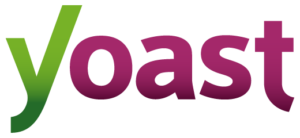
We see a lot of sites with the best layouts, responsive designs, and great content. And yet, most often than not, the site owners complain about not getting enough traction. They feel that they are putting their best marketing efforts and yet, not achieving the expected results. That is where site owners need to reassess their website optimization efforts. Website optimization involves measures that can improve those particular elements of the site which contribute to traffic, as well as conversions. The idea is to optimize the site for a specifically targeted set of audience. Site traffic is a result of various marketing efforts like SEO, paid search, online ads, social ads, organic social posts, blogs, etc. Each of these activities can be managed, enhanced, and assessed using certain tools.
Website optimization tools lay down a detailed picture of your site’s performance (in terms of quantity and quality), what is working and what is not.
GTmetrix

Last year (2018), Google announced that it would add mobile speed to its search engine ranking criteria. So, now, whether your site is accessed on a smart device or the computer, its loading speed will affect its page rank. And longer loading time will make you lose more visitors. GTMetrix helps you determine the loading speed of your page, how heavy the page is, and what you need to fix and how. You can check the Page Speed Score, YSlow Score, and total loading time.
Google Search Console
![]()
Earlier known as Google Webmaster Tools, this is the best as it can get for a free tool. It is comprehensive and easy to use. It helps you analyze your website and what you need to do to boost conversions and improve rankings. Once installed using a small HTML code, GSC collects site information and gives you a report of traffic volume, traffic source, bounce rate, referral sites, and more.
Yoast SEO

This is one of the best and most popular site optimization tools that have been ever built. More than most site admins use Yoast on their WordPress sites to boost its SEO score. Easy to install and use, Yoast renders an SEO and readability score for every piece of content that goes on the site. It also gives a detailed analysis of the problem areas and what needs to be fixed, what is good on the page and what probable concerns are.
Moz

This optimization tool has been there for a while and continues to be one of the most used ones. Moz helps you address issues that might prevent any search engine (not just Google) from crawling your site. It comes with a keyword explorer tool which tells you what your audience is searching for. The ranking tools give you an assessment of your site’s position among your competitors. It also alerts you from probable concerns on your site that could harm your SEO rankings or block traffic.
Summing up…
With more websites, more content, and changing algorithms of search engines, it has become nearly impossible to optimize each of these things manually. Hence these tools. But, how and where you use them will determine their outputs. With an efficient and reliable Cloud Hosting provider, coupled with any of these smart tools, you reap the benefits of optimization and turn your business website into a profitable asset.
